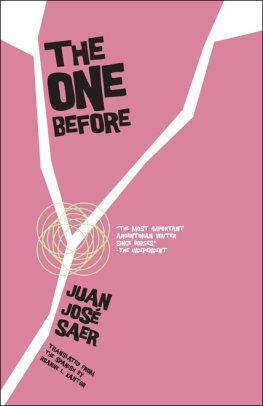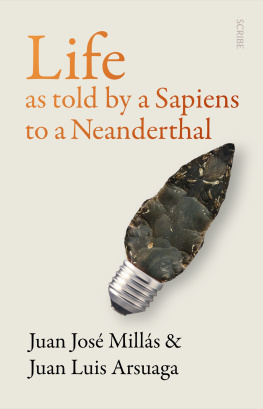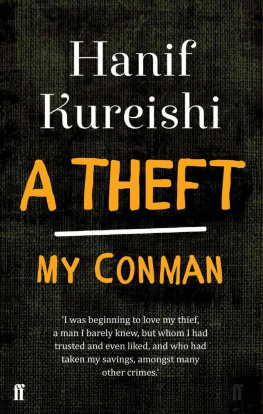Juan José Saer - The Sixty-Five Years of Washington
Here you can read online Juan José Saer - The Sixty-Five Years of Washington full text of the book (entire story) in english for free. Download pdf and epub, get meaning, cover and reviews about this ebook. year: 2010, publisher: Open Letter, genre: Prose. Description of the work, (preface) as well as reviews are available. Best literature library LitArk.com created for fans of good reading and offers a wide selection of genres:
Romance novel
Science fiction
Adventure
Detective
Science
History
Home and family
Prose
Art
Politics
Computer
Non-fiction
Religion
Business
Children
Humor
Choose a favorite category and find really read worthwhile books. Enjoy immersion in the world of imagination, feel the emotions of the characters or learn something new for yourself, make an fascinating discovery.
- Book:The Sixty-Five Years of Washington
- Author:
- Publisher:Open Letter
- Genre:
- Year:2010
- Rating:5 / 5
- Favourites:Add to favourites
- Your mark:
- 100
- 1
- 2
- 3
- 4
- 5
The Sixty-Five Years of Washington: summary, description and annotation
We offer to read an annotation, description, summary or preface (depends on what the author of the book "The Sixty-Five Years of Washington" wrote himself). If you haven't found the necessary information about the book — write in the comments, we will try to find it.
Juan José Saer: author's other books
Who wrote The Sixty-Five Years of Washington? Find out the surname, the name of the author of the book and a list of all author's works by series.
The Sixty-Five Years of Washington — read online for free the complete book (whole text) full work
Below is the text of the book, divided by pages. System saving the place of the last page read, allows you to conveniently read the book "The Sixty-Five Years of Washington" online for free, without having to search again every time where you left off. Put a bookmark, and you can go to the page where you finished reading at any time.
Font size:
Interval:
Bookmark:
Juan Jos Saer
The Sixty-Five Years of Washington
To Michael, Patrick, Pierre Gilles, who practice three true sciences, grammar, homeopathy, and administration, the author dedicates, for the Sunday conversations, this comedy
but then time is your misfortune father said.
In another man devoured
my own death I dont see
but plagued by geometric flowers
I waste away the hours
and now they keep vigil for me
The First Seven Blocks
Suppose its October, October or November, lets say, in 1960 or 1961, October, maybe the fourteenth or sixteenth, or the twenty-second or twenty-third maybe the twenty-third of October in 1961 lets say whats the difference.
Letongel Leto, no? Leto, I was saying, has, a few seconds ago, stepped off the bus on the corner of the boulevard, far from the usual stop, compelled by the sudden desire to walk, to traverse San Martn, the central avenue, on foot, and to let himself get lost in the bright morning instead of shutting himself up in the dark mezzanine of one of the businesses where for the last few months he has patiently but impassively kept the books.
He has, then, stepped off, not without bumping into some passengers who were trying to get on and in his haste generating among them a momentary wave of vague protests; he has waited for the bus to pull away and move metallically down the boulevard toward the city center; he has crossed, alert, both sides of the boulevard separated by the center median, which is half planted and half paved, avoiding the cars driving, placid and hot, in both directions; he has reached the opposite sidewalk, has bought a pack of Particulares and a box of matches at the cigarette kiosk that he has put away in the pockets of his short-sleeved shirt, has walked the few meters to the corner, where he has just arrived, turning the corner south on the eastern sidewalk, the shady side at that hour; and he has begun to walk down San Martn, the central avenue its parallel sidewalks, as they approach the city center, begin to fill with businesses selling records, shoes, groceries, fabric, candy, books, cigarettes, and also with banks, perfume shops, jewelry stores, churches, galleries, and which, at opposite ends, when the cluster of businesses thins out and finally disintegrates, reveal the pretentious and elegant faades, including some why not residential buildings, many of which are decorated, beside the front door, with the bronze plaques that publicize their occupants profession, doctors, lawyers, notaries, engineers, architects, otorhinolaryngologists, radiologists, dentists, accountants, biochemists, brokers in a word, essentially, or in two better yet, to be more precise, every thing.
The man who gets up in the morning, who takes a shower, who eats breakfast and goes out, afterward, into the sun of the city center, comes, without a doubt, from beyond his bed, and from a deeper and heavier darkness than his bedroom: nothing and no one in the world could say why Leto, instead of going to work this morning, like every other day, is now walking easy and calm under the trees that amplify the shade from the row of houses, down San Martn to the south. He suffered so much, said his mother Isabel during breakfast before she left for work; alone afterward, Leto poured a second cup of coffee and went to drink it in the rear courtyard. This He suffered so much was stripped of its representations while he walked around the cramped and blooming courtyard where in the shady corners grass and shrubs, flowerpots and planters retained the dampness of the morning dew, but its overall shape and its impalpable reverberations still preserved their fragile and distracted resonance. Maybe the damp and concentrated shade that persisted at the foot of the houses, on the central avenue, or that mix of damp and brilliance the foliage displays in spring, and which stands out in some front yards, is what recalls his mothers expression to Letos mind once again, how it doubles as sincere gesture and set phrase. The morning humidity that persists in the rising but mitigated heat is absorbed, by association, into the persistent and well-framed image, strange but at once familiar, of his mother who, turning from the gas stove, bringing the steaming coffee pot in her hand, uttered, in a low and thoughtful tone, as though to herself, without the slightest connection to what she had been saying just then, that sentence: He suffered so much. In the early penumbra of the kitchen, the little blue flames joined into concentric rings continued burning behind her after she removed the coffee, the milk, the water, the toast, and turned toward the table with the steaming coffee pot. To Leto, the sentence that was just uttered and has dissipated in the kitchen has the characteristic ambiguity of many of his mothers assertions he finds it difficult to understand its precise meaning; and when he raises his head, stifling his embarrassment and maybe even his shame, and begins to scrutinize Isabels expression, his suspicions that this ambiguity is deliberate only increase, now that, against the backlight of the little blue flames, Isabels now slightly thickened figure advances in silence, her eyes lowered, avoiding his gaze, disarming any inquiry. She has let her comment slip unexpectedly, during the routine exchange over breakfast in the kitchen, when phrases, spoken politely, out of courtesy, a dubious motive, have no more significance or extension than the sound of silverware striking plates. And Leto has begun to think, while he takes the first sip of black coffee and watches her sit, abstractedly, on the other side of the table: It must be the hope of erasing her humiliation that makes her pretend he suffered so muchbut, and Leto raises his head again and fixes his eyes on the dumpy though still somewhat childlike face, which, with its eyelids lowered, reveals nothing: Can she tell? Does she notice? Is she sounding me out? Is she testing me? The hardest part, regardless, is, at a distance, knowing how to reply. Leto would have been well-disposed and, above all, relieved, to give the response she is waiting for, if, just then, it were possible to know what she is waiting for, but, with a desperate insistence, she seemed to want him to guess it on his own, and does not give him, therefore, any help. Leto searches, hesitates, and then, unsure, though not without a degree of resentment, the way he reacts toward every comment of that kind, does not say anything. A somewhat hard silence follows, uncomfortable for them both, in which there is possibly deception and not even a little relief, and which Isabel breaks by emptying her cup of caf con leche in one swallow and chewing, noisily, her last piece of toast, and afterward recur the opaque and customary comments furnished with ambiguity by their intonation alone, though issued from neutral and distracted lips. These comments also come, certainly, from farther away, farther back than the tongue, the vocal chords, the lungs, brain, and breath, from the far side of the depository of named and accumulated experience, from which, blindly groping, though believing to consider carefully, each person withdraws and expels them. In the silence that follows, including when, after brushing his cheek with her lips, closing behind her, softly, two or three doors, she has finally gone, before him, to work, her image, as strange as it is familiar, begins to unglue itself from its representations so as to disseminate itself more easily throughout his body, as though, in its ebb and flow, blood is able to reduce the impalpable to its material tenacity, metabolizing and distributing it to cells, tissue, flesh, bones, muscles. With his second cup of coffee in hand, while he observes the dampness of the morning dew thats yet to dissolve from the corners of the shade, Leto, though not his body, has now forgotten his mother, and it is this same humid shade persisting now, around ten, on the central avenue, which covers his body like the first invisible layer of the world and is likewise covered by the bright morning, that causes him again to remember her, to project her onto the unstable and inconstant little screen of images where he flashes, momentarily, the tiny spotlight of his attention. Without, as they say, a doubt, the same impulse that moved Isabel to utter her startling and mysterious comment, has caused him, suddenly, to get off the bus, cross the boulevard, buy the cigarettes, and begin walking, for no reason, to the south.
Font size:
Interval:
Bookmark:
Similar books «The Sixty-Five Years of Washington»
Look at similar books to The Sixty-Five Years of Washington. We have selected literature similar in name and meaning in the hope of providing readers with more options to find new, interesting, not yet read works.
Discussion, reviews of the book The Sixty-Five Years of Washington and just readers' own opinions. Leave your comments, write what you think about the work, its meaning or the main characters. Specify what exactly you liked and what you didn't like, and why you think so.












